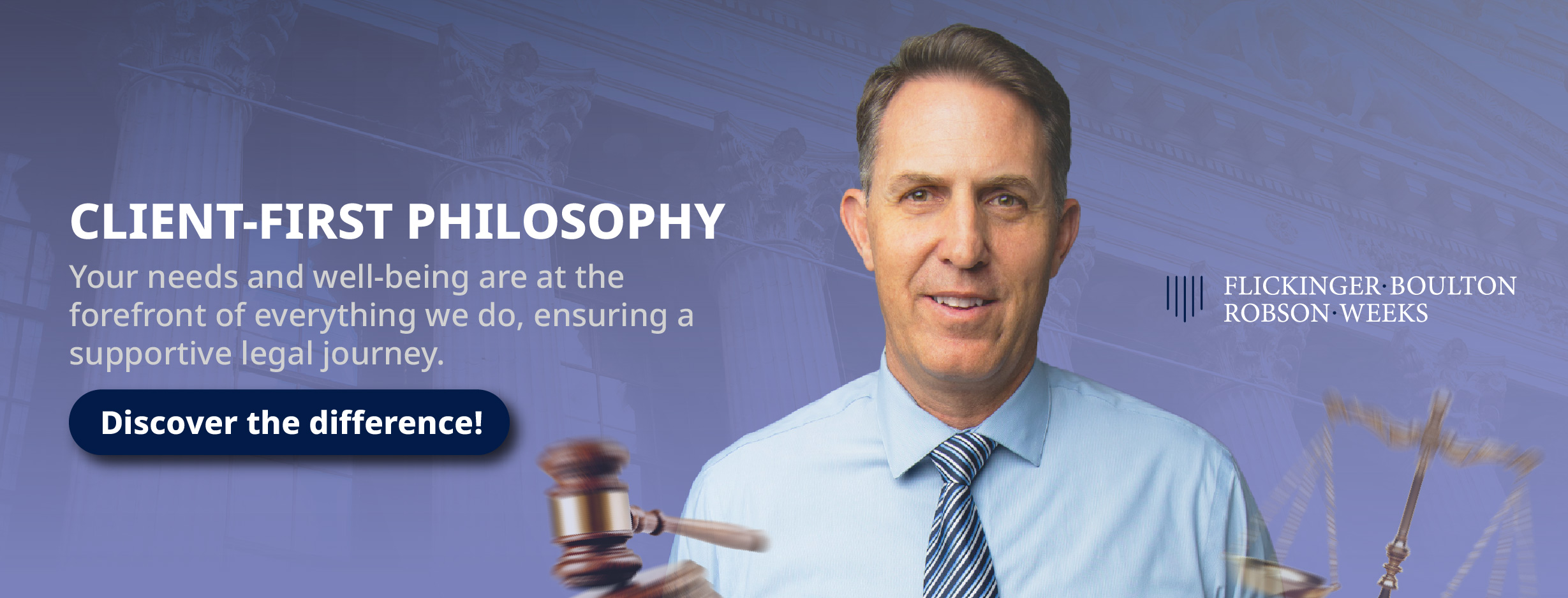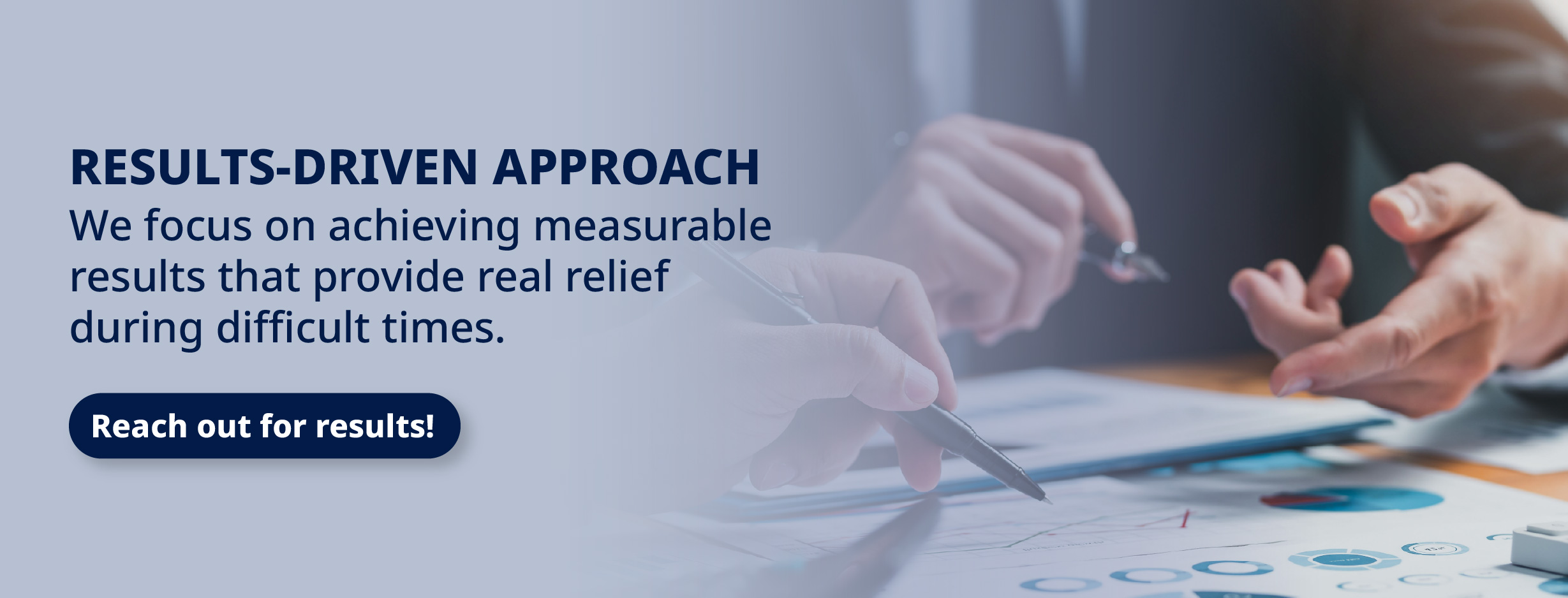If you’ve been injured in a car accident in Utah, you may be wondering whether to accept a settlement or pursue a lawsuit to recover compensation. While settlements are often the quickest way to resolve a claim, they may not always provide the full amount you deserve. On the other hand, taking your case to court can lead to a larger payout but comes with added risks and a longer timeline.
At Flickinger Boulton Robson Weeks, we help accident victims weigh their options and make informed decisions about their claims. Whether through aggressive settlement negotiations or litigation, our experienced Utah car accident lawyers will advocate on your behalf to ensure you receive the maximum compensation possible.
Contact us today for a free consultation to discuss the best approach for your case.
After a car accident in Utah, one of the most important decisions you’ll face is whether to accept a settlement or pursue a lawsuit. While settlements are often faster and less stressful, lawsuits may result in higher compensation.
Understanding the pros and cons of each option can help you make the best decision for your situation.
Most car accident cases are resolved through settlements, where the insurance company agrees to pay an agreed-upon amount to the injured party. Settling has several advantages:
Lawsuits can take months or even years, while settlements are often reached within weeks or months.
Going to court involves attorney fees, court costs, and expert witness expenses.
A settlement provides a guaranteed payout, whereas a trial’s outcome is unpredictable.
However, insurance companies often offer low settlements to minimize their payouts. Pursuing legal action may be the best option if their offer doesn’t fully cover your medical bills, lost wages, and pain and suffering.
Sometimes, filing a lawsuit is the only way to secure the compensation you deserve. You may want to go to court if:
Going to trial can lead to higher compensation, but it also comes with risks. The process is time-consuming, and there’s no guarantee the court will rule in your favor.
Deciding whether to settle or go to court depends on the strength of your case and the offer on the table. At Flickinger Boulton Robson Weeks, our experienced Utah car accident lawyers will evaluate your claim, negotiate aggressively with insurers, and take your case to trial if necessary. Contact us today to discuss your options and determine the best path forward.

When a car accident claim cannot be resolved through a fair settlement, filing a lawsuit may be the best option for securing full compensation. While lawsuits take longer than settlements, they provide accident victims with a chance to recover damages for medical bills, lost wages, pain and suffering, and more.
Below are the key steps in a Utah car accident lawsuit.
The legal process starts when your attorney files a complaint with the court. This document includes the following:
The defendant, who is either the at-fault driver or their insurance company, will be served with the lawsuit and will be given a certain amount of time to respond.
Once the lawsuit is filed, both sides enter the discovery phase, where they gather evidence to support their case. This includes:
Discovery can take several months to a year, depending on the complexity of the case.
Before going to trial, both sides may attempt to settle through mediation. A neutral third party helps negotiate a resolution, saving time and legal costs. Many cases are settled at this stage to avoid the risks of trial.
If no settlement is reached, the case proceeds to trial, where a judge or jury will determine fault and award damages. The trial includes:
After hearing the evidence, the court will issue a verdict, deciding whether the defendant is liable and how much compensation the plaintiff will receive. If either party disagrees with the ruling, it may file an appeal, extending the legal process further.
A car accident lawsuit in Utah involves multiple legal steps, from filing the complaint to potentially going to trial. While lawsuits take time, they may be necessary when insurance companies refuse to offer a fair settlement.
One of the most common questions accident victims have is how long it will take to resolve their case. The timeline for a Utah car accident claim varies based on factors such as the severity of injuries, insurance negotiations, and whether a lawsuit is necessary.
While some cases settle in a few months, others can take years, especially if they go to trial.
After a car accident, the first step is filing a claim with the at-fault driver’s insurance company. The insurer will assign an adjuster to review evidence, assess damages, and determine liability. This process can take:
Providing strong evidence early, such as police reports, medical records, and witness statements, can help speed up the process.
Most Utah car accident cases are resolved through settlements, but insurance companies often delay or offer low settlements to minimize payouts. Settlement negotiations can take:
If the insurer refuses to offer fair compensation, your attorney may recommend filing a lawsuit.
If a lawsuit is filed, the case enters the discovery phase, where both sides gather evidence. This stage includes:
Discovery alone can take six months to a year or more, depending on case complexity and court schedules.
If a settlement isn’t reached, the case proceeds to trial, which adds further delays. Trials involve:
A trial can take several months and, if appealed, may extend the case by years.
The length of a Utah car accident case depends on whether it settles quickly or goes to trial. While some claims are resolved in a few months, complex cases can take years.
At Flickinger Boulton Robson Weeks, we fight to expedite the process while maximizing compensation. Contact us today to discuss the best approach for your case.
If your car accident case cannot be resolved through settlement, it may proceed to trial. While most claims are settled before reaching this stage, taking a case to court can sometimes be necessary to secure the compensation you deserve.
Understanding the trial process can help you prepare for what lies ahead and ease any concerns about presenting your case before a judge or jury.
Before the trial begins, both sides complete pre-trial preparations, which include:
At Flickinger Boulton Robson Weeks, our attorneys will ensure that you are fully prepared for trial, including coaching you on how to answer questions if you are called to testify.
In some cases, a jury trial is necessary, meaning both sides participate in a process called voir dire, where attorneys question potential jurors to ensure they are impartial. If a bench trial is chosen instead, a judge alone will decide the case.
Once the trial begins, both attorneys present opening statements to outline their arguments.

The bulk of the trial involves presenting evidence to prove your case. This may include:
The defense will also present evidence to challenge your claims, and both sides will have the opportunity for cross-examination, where attorneys question each other’s witnesses.
Once all evidence is presented, both attorneys deliver closing arguments summarizing their case.
Closing arguments are the final opportunity to persuade the jury or judge before a verdict is reached.
If your case is heard by a jury, they will deliberate privately to determine liability and the amount of compensation you will receive. The judge will issue a ruling if your case is a bench trial.
If you or the defense are dissatisfied with the outcome, either side can file an appeal, which may extend the case for months or even years. Your attorney will discuss whether appealing the decision is in your best interest.
Going to trial can be a lengthy and complex process, but it may be necessary if the insurance company refuses to offer fair compensation. A strong legal team can make all the difference in presenting a compelling case, handling courtroom procedures, and maximizing your compensation.
At Flickinger Boulton Robson Weeks, we are fully prepared to take your case to trial if needed and fight for the justice you deserve. Contact us today for a free consultation, and let us advocate for your rights and interests in court.
UTAH INJURY LAWYERS
Flickinger • Boulton
• Robson • Weeks
PROVO OFFICE
3000 N University Ave
Suite 300
Provo, UT 84604
SOUTH JORDAN OFFICE
10393 S. Temple Dr.
Suite 103
South Jordan, Utah 84095
OFFICE HOURS
Monday- Friday: 8AM-5PM
Saturday-Sunday: Closed
*Disclaimer: the information provided by this website is for informational purposes only and should not be considered legal advice or a substitute for competent legal counsel.
**SMS consent and contact phone numbers will not be shared or sold to third parties or their affiliates for any purpose.
© 2025 All Rights Reserved.